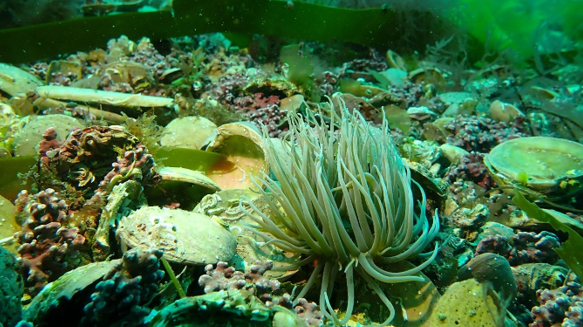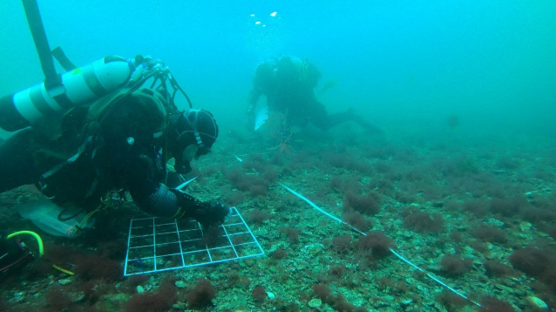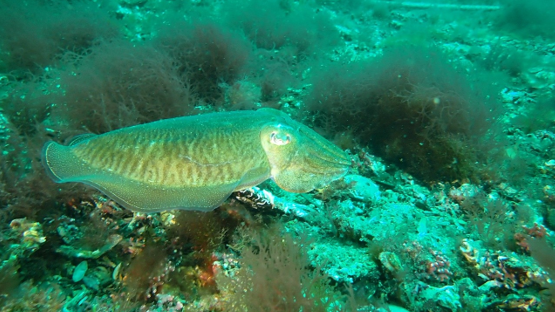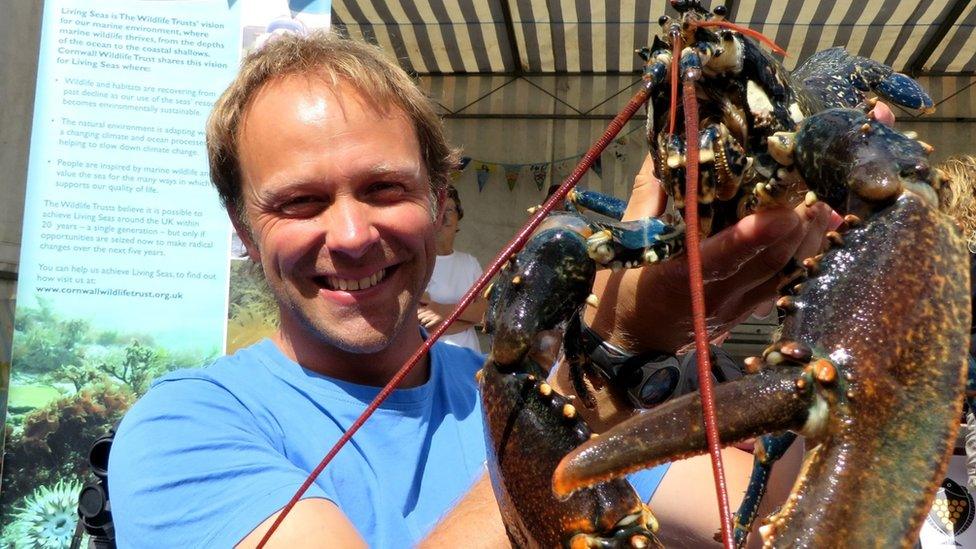Divers discover new beds of rare seaweed

The maerl beds are home to many species of marine animals and plants, such as this snakelock anemone
- Published
Divers have discovered large beds of a rare pink calcified seaweed growing off the coast of south Cornwall.
The areas - known as maerl beds - form the basis of marine food chains in the area, and are hugely important for the local ecosystem, say experts.
The team and specialist survey divers found 79 different types of animal living on the maerl off the Roseland Peninsula and St Austell Bay.
Natural England said maerl plays a crucial role in supporting fish populations and underpinning healthy fisheries, and is classed as an “irreplaceable habitat".

The diving survey was led by Natural England
Experts said maerl beds in the Fal and Helford estuaries have long been known about, but far less is known about the maerl in the bays along Cornwall’s south coast.
Earlier in July, Natural England set out on an expedition involving Porthkerris Divers and an underwater drone to find out more.

Experts say maerl plays a crucial role in supporting marine wildlife populations
Natural England's marine senior officer, Angela Gall, who led the survey said: “It’s incredible to think that in Britain, within sight of the shore, there are still completely undiscovered sites.
"We will use this new evidence on the maerl bed sites to seek better protection for these ancient woodlands of the sea."
Follow BBC Cornwall on X (formerly Twitter), external, Facebook, external and Instagram, external. Send your story ideas to spotlight@bbc.co.uk, external.
Related topics
Related internet links
Related stories
- Published11 November 2022
